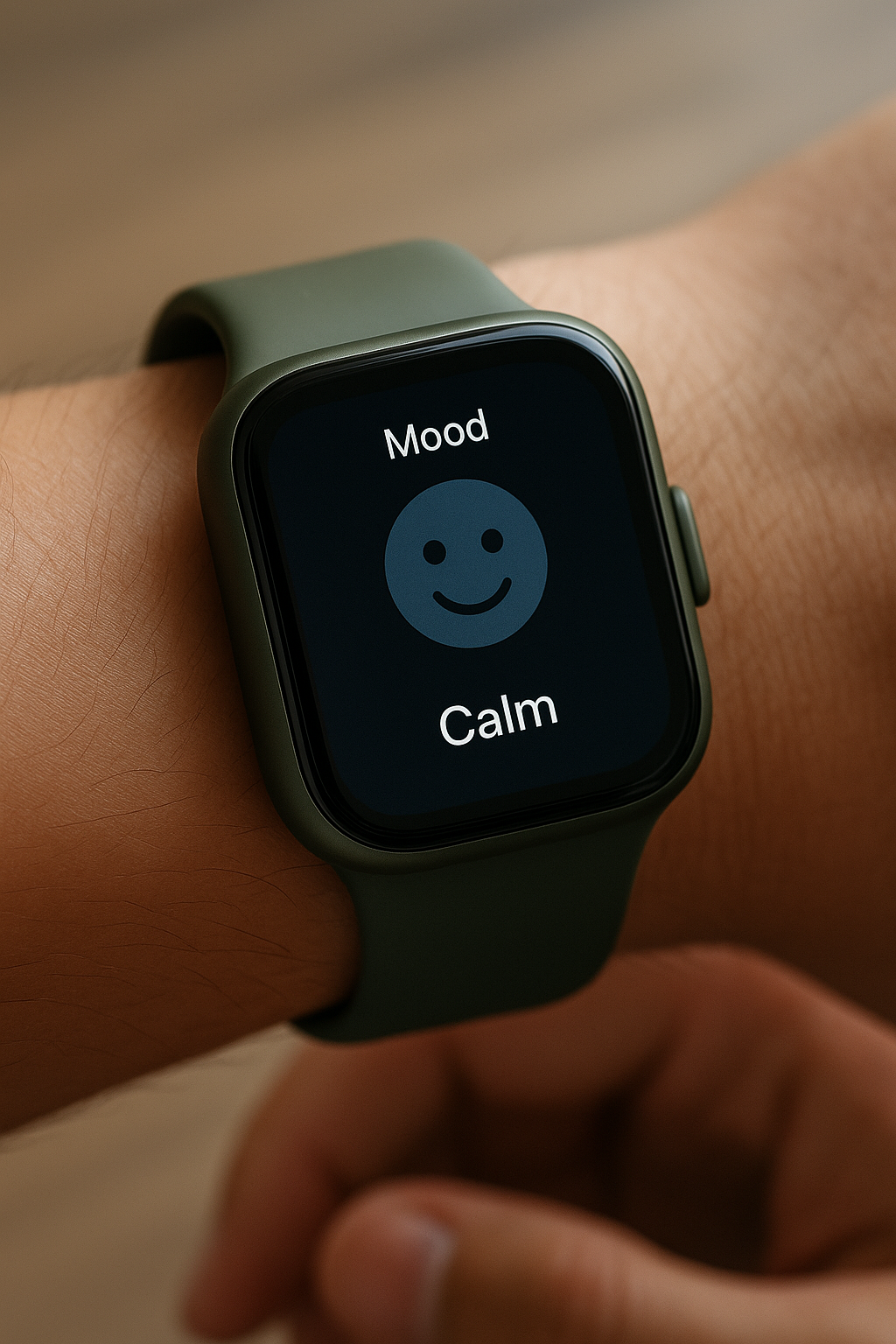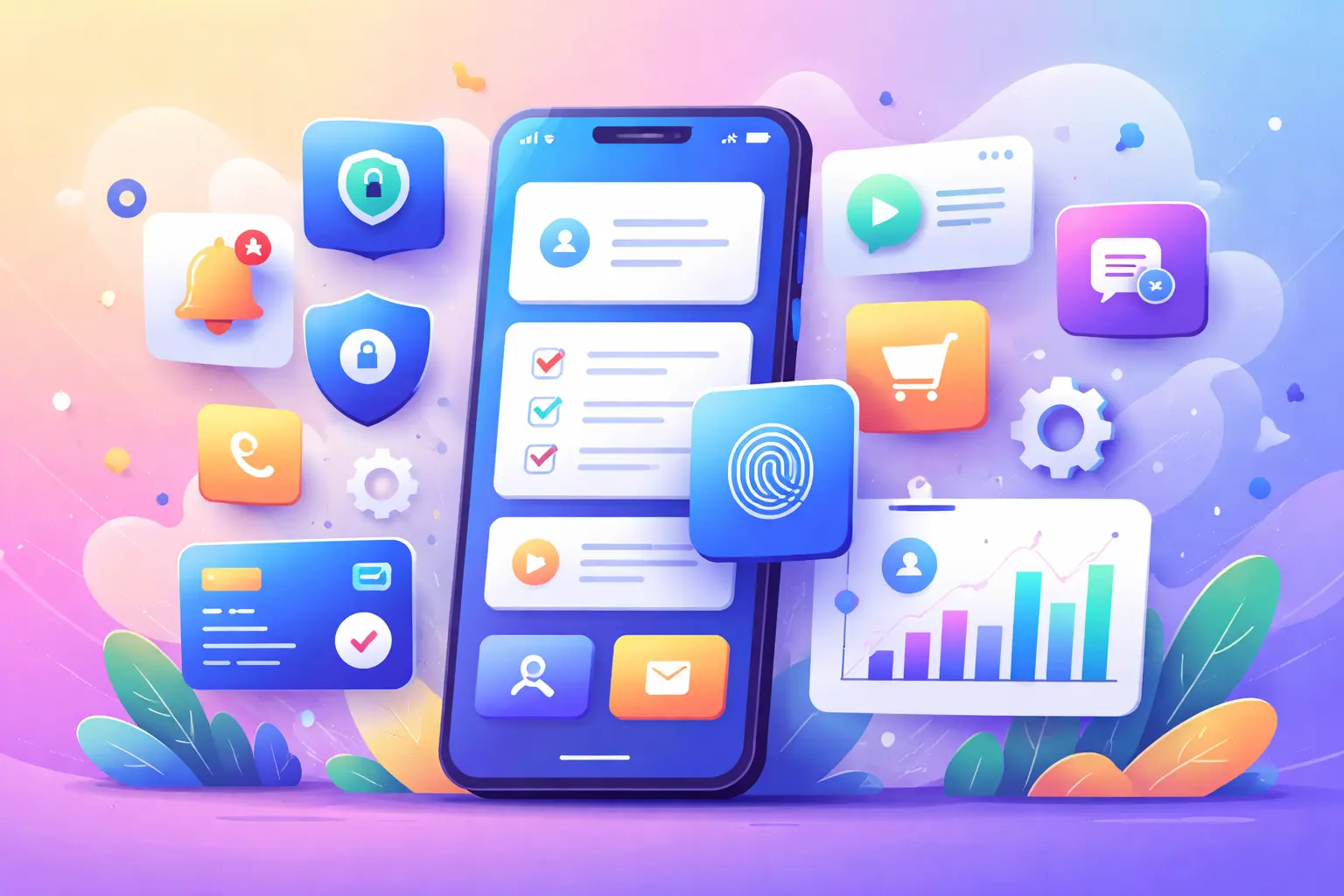ne a watch that doesn’t just tell time—but tells how you’re feeling.
That’s no longer science fiction. In 2025, wearable technology has officially crossed into emotional intelligence, with the rise of AI-powered mood-tracking smartwatches.
From stress detection to mood analysis, the next generation of smartwatches is designed to help you understand your emotional health better than ever before.
How Does Mood Detection Work?
These smartwatches use a combination of biometric sensors and artificial intelligence to interpret your emotional state. Here’s what they track:
- Heart Rate Variability (HRV): A key indicator of stress or relaxation.
- Skin Temperature: Often fluctuates with emotional shifts.
- Sleep Quality: Poor sleep can reflect emotional imbalance.
- Motion Patterns: AI can detect anxious pacing or sedentary fatigue.
- Blood Oxygen & Breathing Rate: Subtle but powerful mood indicators.
Once the data is collected, machine learning algorithms analyze your body signals and match them to known emotional states like Calm, Anxious, Focused, Stressed, or Happy.
Real-World Use Cases
Mood-sensing smartwatches are not just cool—they’re practical. Here’s how people are using them:
- Mental Health Awareness: Get notified when your stress spikes.
- Mindfulness Triggers: The watch can suggest breathing exercises when you’re tense.
- Mood Journaling: Automatic mood logs help users spot emotional patterns.
- Smart Notifications: Your watch might delay non-urgent alerts if it detects you’re overwhelmed.
- Couples & Family Sharing: Some apps allow sharing moods with loved ones (with permission).
Why This Tech Matters
In today’s fast-paced digital world, mental health often takes a back seat. Mood-aware technology brings emotional wellness into your everyday routine—without requiring effort or awareness.
By passively tracking and reflecting your emotional trends, these watches can help you:
- Avoid burnout
- Detect early signs of anxiety or depression
- Make smarter decisions about sleep, work, and relationships
- Practice better self-care
Is It Private?
Yes—major smartwatch brands encrypt emotional data just like your health data. You choose what gets stored, shared, or deleted.
Always read the privacy settings and opt out of mood sharing if you want complete control.
Who’s Leading the Mood-Tech Race?
While Apple, Fitbit, and Samsung are exploring these features, several AI-driven startups are moving faster:
- Cove: Tracks stress levels and delivers sound-based therapy
- Nowatch: A screenless watch that focuses on mood, not time
- Biobeat & Mindwear: Clinical-grade biometric monitoring with emotional overlays
These are no longer niche products—they’re entering the mainstream.
Final Thoughts
Smartwatches are no longer just fitness trackers—they’re becoming emotional companions. Whether you’re struggling with stress, trying to boost focus, or simply curious about your emotional rhythms, mood-tracking wearables offer real insight and gentle guidance.
So next time your smartwatch says you’re feeling “Calm” or “Stressed,” don’t ignore it—it just might know you better than you think.




